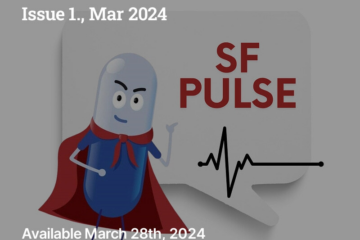The World Health Summit session entitled “Fighting Falsified and Substandard (SF) Medicines during the COVID-19 Crisis” took place on the 27th of October and explored the challenges the ongoing COVID-19 pandemic placed on stakeholders to control and combat rising levels of SF medicines.
Although the pandemic has exposed how widespread and porous supply chains across the global are, the majority of the burden is still shouldered by low- and middle-income countries (LMICs). Constrained access to essential medicines, poor regulatory and legal frameworks and weak technical capacity for medical quality assurance all contribute to optimal ecosystems for the proliferation of SF medicines. The COVID-19 crisis led to a disruption in the production and supply chains of medicines worldwide, and some countries stopped the export of medicines. African nations, the majority of which are import dependent nations for Active Pharmaceutical Ingredients (API) and finished medical products were heavily impacted by this.
As the race for a COVID-19 vaccine continues, newly developed treatments and subsequently vaccines will be in high demand and low supply, again creating increased opportunities for the distribution of falsified medicines by criminals. This session assessed the situation in Africa from the viewpoints of the speakers and allowed listeners an insight into the work that goes on to counteract the rising level of falsified medicines.
The session was chaired by Professor Dr. Lutz Heide, Professor of Pharmaceutical Biology at the Eberhard Karls University Tuebingen in Germany.
- The first speaker, Dr. Moji Christianah Adeyeye, Director-General of the Nigerian National Agency for Food & Drug Administration and Control (NAFDAC) explained that as Nigeria is an import dependent country for medicines, during the COVID-19 lockdown, drug shortages lead to an increase in drug prices and created an increased opportunity for criminals to distribute their falsified medicines with falsified chloroquine being detected. NAFDAC currently employ the World Health Organization’s “Prevention, Detection Response” framework to help safeguard public health and combat falsified medicines. Dr Moji stressed that information sharing among regulatory agencies was a necessary key step to effectively Fight The Fakes.
- Dr. Richard Neci, Executive Director of the Ecumenical Pharmaceutical Network (EPN) explained that the Mini-lab network is one of the companies strategies to promote the quality assurance of medicines and information and knowledge sharing to their members across the African continent. Dr Neci explained that emergency health crises always presents a window of opportunity for criminals to introduce falsified medicines to a supply chain. Currently, EPN has 16 partners in 13 countries who are part of the Mini-lab network, but there is a strong need for the expansion of the Minilab Network in Africa as during the height of the pandemic, the World Health Organization released a medical product alert for falsified chloroquine products circulating across Africa which was discovered using the network.
- Professor Dr. Pierre Claver Kayumba, Senior Lecturer and Researcher at the National University of Rwanda and Chairman Of The Board at Rwanda Medical Supply explained that the lack of a World Health Organisation “Special Procurement Guidelines for Pandemic Preparedness” resulted in an influx of falsified medicines in Rwanda. The Rwandan Medical Supply faced many challenges during the COVID-19 crisis such as substandard and falsified medicines that was a result of an in-kind donation. During the course of the pandemic, the organization has updated its procurement regulations and now only sources medication directly from manufacturers or their representatives to combat SF medicines.
- Dr. Karim Bendhaou, Head of Africa Bureau at Merck Germany, explained the many challenges nations still face as they try to counteract the influx of SF medicine. Dr Karim stressed the need for greater implementation of effective detection technologies as it is very difficult to track the falsified medicines once they enter the supply chain. Merck and the Global Pharma Health Fund (GPHF) developed the Mini-Lab to bridge the gap in regular drug quality monitoring on a national level in LMICs to overcome limited access to regular quality testing of drug supplies. There are over 800 minilabs in use across 100 countries that facilitates quick and reliable testing of over 100 active ingredients. Dr Karim highlighted the importance of quality assurance as the minilab empowers local stakeholders to actively counteract SF medicines.
- Professor Dr. Sachiko Ozawa, Associate Professor at the University of North Carolina in the United States of America explained that researched showed that countries with higher levels of SF medicines tended to have lower insurance of coverage of essential services. The global economic impact of SF medicines ranges from $10 Billion to $200 Billion and they hinder efforts to achieve Universal Health Coverage in LMICs.
- Stanislas Barro, Global Head of Anti-Counterfeiting at Novartis presented a white paper entitled “The Scourge of Falsified Medicines in Africa” which was a joint endeavor with the World Health Organisation, Pharmaceutical companies and the International Federation of Pharmaceutical Manufacturers & Associations (IFPMA) to better understand the widespread problem of SF medicines across Africa which continues at the detriment of patient safety. The paper highlights key issues and presents 10 tangible recommendations suitable to combat SF medicines in Africa. The paper will be released later this year, stay tuned for updates on this!



